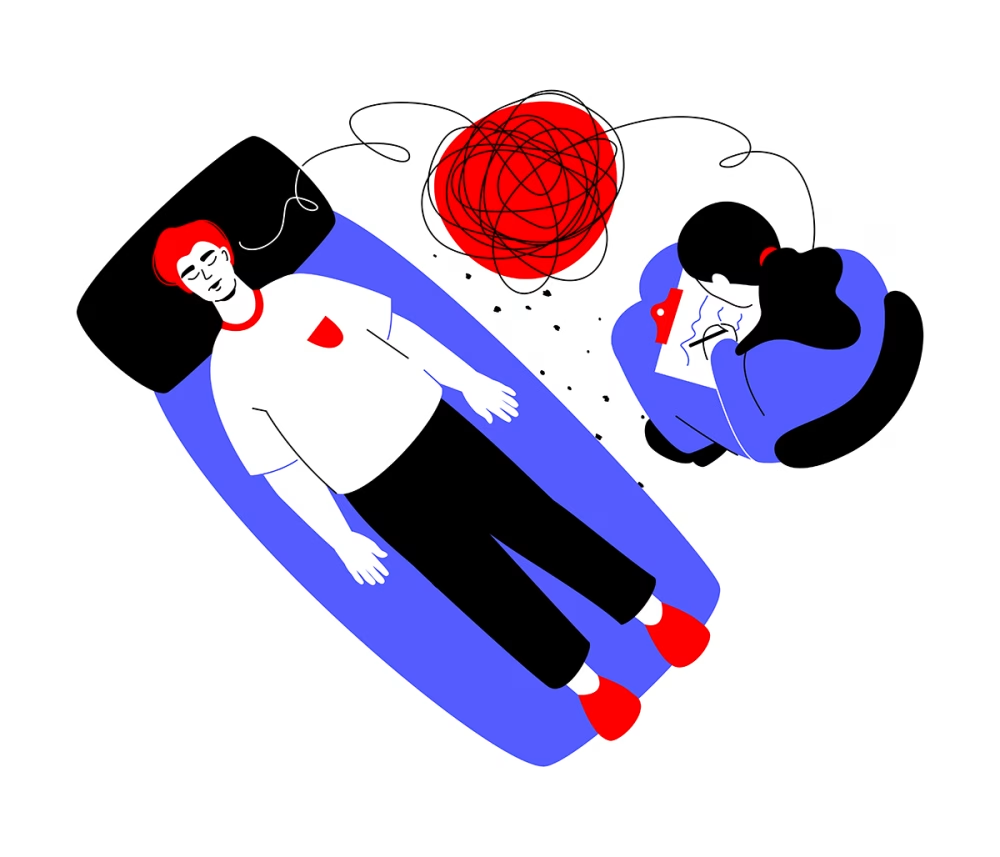Orthorexia is a term used to describe an unhealthy obsession with eating foods that one considers to be healthy. While it may initially seem like a positive pursuit—striving for better nutrition—it can have serious consequences for both physical and mental well-being. Unlike other eating disorders, such as anorexia or bulimia, orthorexia focuses more on the… Continue reading
Category Articles
Is Therapy a Helpful Tool When You Have Serious Health Problems?
Facing a serious health condition can be one of the most challenging experiences in life. Whether it’s a chronic illness, a life-altering diagnosis, or a sudden health crisis, the emotional and psychological toll can be overwhelming. While medical treatments focus on physical healing, therapy can play a crucial role in addressing the mental and emotional… Continue reading
The Importance of a Strong Therapeutic Relationship in Therapy
In therapy, the connection between a client and their therapist often plays an important role in the success of the therapeutic process. This bond, commonly referred to as the therapeutic relationship, serves as the foundation for creating a safe and supportive space where change can take place. What is the Therapeutic Relationship? The therapeutic relationship… Continue reading
Taking Control of Guilt
Guilt is a natural emotion that arises when we feel we’ve done something wrong or failed to meet our own or others’ expectations. While it can sometimes motivate us to make amends or improve, excessive guilt can take a toll on our mental health, and taking control of guilt becomes an important topic for many…. Continue reading
What Questions Should You Ask Before Starting Your First Therapy Session?
Starting therapy can feel like a big step, and it’s natural to have questions before diving in. Whether you’re seeking counseling for personal growth, mental health support, or dealing with a specific challenge, asking the right questions beforehand can help you feel more confident and prepared. Here’s a guide to what you might want to… Continue reading
Overthinking and How Cognitive Behavioral Therapy (CBT) Can Help
Overthinking is something many of us experience from time to time. It’s that cycle of worrying about a decision or replaying past events in our minds. While some reflection is healthy, overthinking can become a habit that affects our mental health, making us feel anxious, stressed, and overwhelmed. What Is Overthinking? Overthinking is when we… Continue reading
What is the Cognitive Triad?
The cognitive triad is a fundamental concept in cognitive behavioral therapy (CBT), a widely-used approach to treating mental health issues like depression and anxiety. This concept was developed by psychiatrist Aaron Beck in the 1960s. It serves as a framework for understanding how our thoughts can affect our emotions and behaviours. The cognitive triad refers… Continue reading
The Functions of Psychotherapy: How It Can Help You
Psychotherapy, often referred to as “talk therapy,” is a powerful tool for addressing emotional and psychological challenges. It serves many functions that can be essential to your well-being, whether you’re dealing with everyday stress or deeper emotional issues. In this article, we’ll explore the primary functions of psychotherapy and how it can positively impact your… Continue reading
The Most Common Types of Intrusive Thoughts
Intrusive thoughts are unwanted and distressing ideas, images, or urges that suddenly pop into a person’s mind, often causing significant anxiety or discomfort. Although everyone experiences these thoughts from time to time, they can become overwhelming for those with Obsessive-Compulsive Disorder (OCD) or other anxiety-related conditions. These thoughts do not reflect a person’s character or… Continue reading
Does Online Therapy Work? Exploring the Benefits and Challenges
Nowadays, where everything from shopping to banking is done online, it’s no surprise that therapy has also moved into the digital realm. Online therapy has become an increasingly popular option for people seeking mental health support, offering a convenient and accessible way to talk to a therapist without the need for a traditional office visit…. Continue reading










